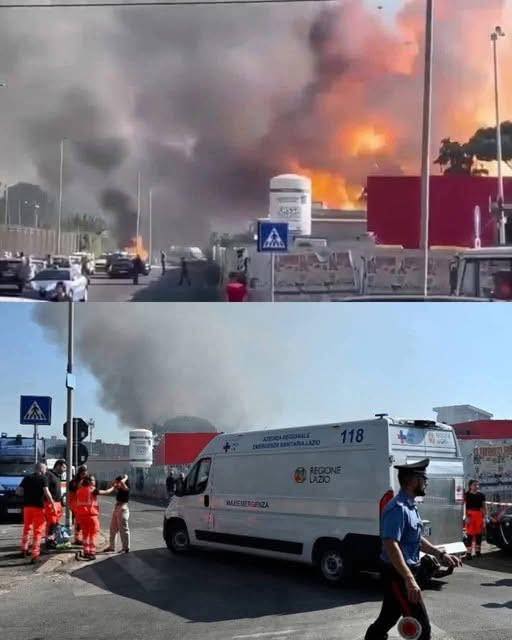Mexico City Faces Devastating Gas Tanker Explosion
Mexico City is reeling from one of its most catastrophic road accidents in recent memory after a liquefied petroleum gas (LPG) tanker overturned and exploded on the Iztapalapa–Chalco highway, sending a massive fireball that engulfed vehicles, destroyed property, and left dozens dead or injured.
The explosion on September 10, 2025, transformed an ordinary afternoon commute into a scene of chaos and panic. Eyewitnesses described a thunderous blast, intense heat, and a towering column of black smoke visible for miles. Within minutes, videos of the firestorm went viral on social media, sparking widespread shock and grief.
What Happened
Authorities confirmed that the tanker carried over 13,000 gallons of LPG, a highly flammable fuel used across homes and businesses in Mexico. While traveling along the busy corridor on the city’s eastern edge, the driver reportedly lost control. The tanker overturned, rupturing its tank, and the escaping gas ignited almost immediately.
Witnesses recounted a terrifying scene as flames consumed nearby cars and motorcycles. Commuters abandoned their vehicles and ran for safety, while others caught in traffic could only watch in horror as the tanker erupted. Firefighters and emergency crews battled the blaze for hours, prioritizing containment and preventing secondary explosions caused by burning vehicles. Roads were closed, disrupting traffic but giving rescuers room to evacuate survivors.
Casualties and Damage
The human toll has been severe. Early reports noted three deaths, but updated figures indicate at least 15 fatalities and over 70 injuries, many from severe burns. Hospitals reported a surge of patients, some in critical condition, requiring urgent surgery and specialized burn care.
Property damage was extensive. More than 30 vehicles were destroyed or heavily damaged, with twisted metal littering the highway. Nearby homes and businesses reported shattered windows and structural damage from the blast’s shockwave.
Investigation Underway
City officials launched a full investigation. Authorities are examining possible causes, including mechanical failure, excessive speed, or driver error. Early findings suggest the tanker may have lacked proper insurance or safety documentation for transporting hazardous cargo.
“This was not only a tragic accident but potentially preventable,” a transportation official said. “If negligence or regulatory violations are found, those responsible will be held accountable.”
Community in Shock
The blast shook the surrounding community. Residents reported their homes rattling as if from an earthquake, and many evacuated in fear of secondary explosions. Calls are growing for stricter regulations on transporting hazardous materials in densely populated areas.
“We live right next to this highway,” a resident told local media. “Every day these trucks pass by. It could happen again tomorrow. We cannot live with this danger looming over us.”
Officials are now considering rerouting dangerous cargo away from residential areas, enforcing mandatory inspections, and improving driver training to reduce risk.
Safety Lessons and Next Steps
Experts emphasize the urgent need for stronger safety measures:
Stricter vehicle inspections to ensure tankers are mechanically sound and equipped with the latest safety technology.
Enhanced driver training, including emergency response for rollovers or fuel leaks.
Clear routing policies to keep hazardous cargo away from heavily populated areas.
Rapid emergency response planning to ensure cities can react quickly to similar disasters.
Transportation analysts note that Mexico has experienced multiple fuel and gas transport accidents in recent years, often linked to poor enforcement of safety standards. The Iztapalapa explosion should serve as a wake-up call for both government and private companies responsible for moving dangerous cargo.
A Nation Mourns
For the victims’ families, reforms will come too late. Many households are grieving lost loved ones or anxiously waiting at hospital bedsides. Community groups have mobilized, collecting blood, medical supplies, and funds to help the injured and their families.
At a national level, officials have promised accountability, but public frustration is growing. “Every time, they say the same thing—that changes will come,” a witness said. “But people keep dying, and nothing changes.”
Conclusion
The Mexico City gas tanker explosion is more than a highway accident. It is a stark reminder of the dangers of transporting hazardous materials, especially in a crowded city like the capital. While the investigation continues, the physical and emotional scars will remain.
The road may eventually reopen, and the smoke may fade, but the memory of September 10, 2025, will linger in Mexico City for years to come.
